DIY vinegar all-purpose spray: are you tired of harsh chemicals and sky-high prices for your household cleaners? I know I was! That’s why I dove headfirst into the world of homemade cleaning solutions, and let me tell you, it’s been a game-changer. Imagine a world where you can ditch those store-bought bottles filled with unpronounceable ingredients and embrace a simple, effective, and eco-friendly alternative.
Vinegar, a staple in kitchens for centuries, has a surprisingly rich history beyond just flavoring our food. From ancient civilizations using it as a preservative to its modern-day applications in everything from cooking to cleaning, vinegar has proven its versatility time and time again. Our grandmothers knew the power of vinegar, using it for everything from cleaning windows to disinfecting surfaces. They understood the value of simple, natural solutions, and now, we can too!
In today’s world, where we’re increasingly conscious of the products we use in our homes and their impact on the environment, creating your own DIY vinegar all-purpose spray is more relevant than ever. Not only is it incredibly cost-effective, but it also allows you to control exactly what goes into your cleaner, avoiding harmful chemicals and allergens. Plus, it’s incredibly easy to make! I’m going to show you how to whip up a batch in minutes, saving you money and giving you peace of mind knowing you’re using a safe and effective cleaner for your home.
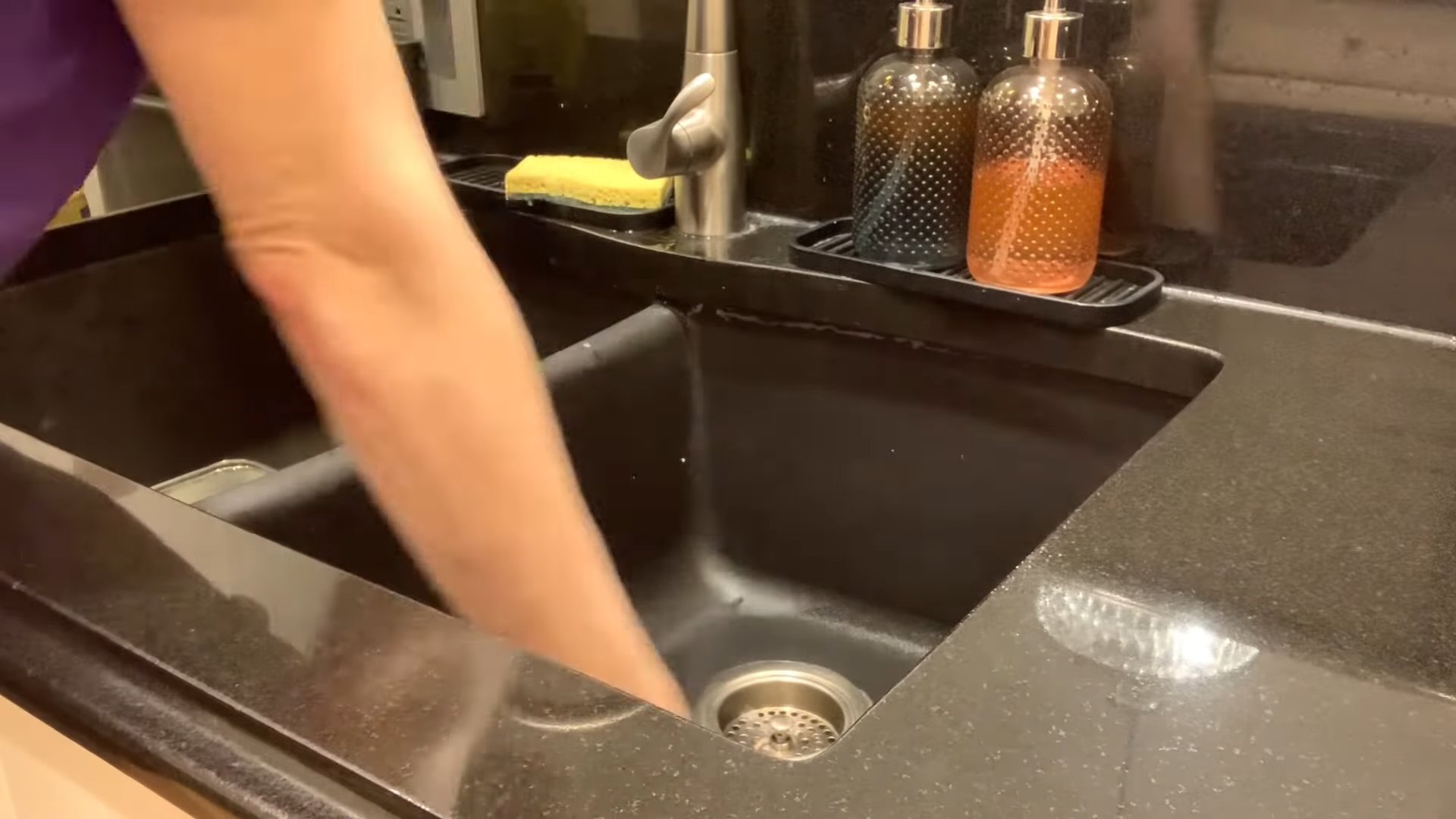
DIY All-Purpose Vinegar Cleaning Spray: A Natural Cleaning Powerhouse!
Hey there, fellow DIY enthusiasts! I’m so excited to share my go-to recipe for an all-purpose cleaning spray that’s not only incredibly effective but also super budget-friendly and eco-conscious. Forget those harsh chemicals and expensive store-bought cleaners – we’re going natural with the power of vinegar! This spray is perfect for cleaning countertops, sinks, showers, floors (except hardwood – more on that later!), and so much more. Let’s get started!
What You’ll Need
Before we dive into the mixing magic, let’s gather our supplies. Here’s a list of everything you’ll need to create your own all-purpose vinegar cleaning spray:
* White Distilled Vinegar: This is the star of the show! Its acidity is what cuts through grease, grime, and bacteria.
* Water: Dilutes the vinegar to make it less harsh and more pleasant to use.
* Essential Oils (Optional): Vinegar has a distinct smell, so essential oils are a great way to add a fresh, clean scent. I personally love lemon, lavender, tea tree, or eucalyptus.
* Spray Bottle: A clean, empty spray bottle is essential for dispensing your cleaning solution. I recommend using a dark-colored bottle to protect the essential oils from light degradation.
* Measuring Cup or Spoons: For accurate measurements, especially when adding essential oils.
* Funnel (Optional): Makes pouring liquids into the spray bottle much easier and less messy.
The Basic Recipe
This is the foundation of our all-purpose cleaner. Feel free to adjust the ratios to suit your preferences, but I’ve found this works perfectly for most cleaning tasks.
Ingredients:
* 1 cup White Distilled Vinegar
* 1 cup Water
* 10-20 drops Essential Oils (Optional)
Step-by-Step Instructions
Alright, let’s get down to business! Here’s how to whip up your own batch of all-purpose vinegar cleaning spray:
1. Prepare Your Spray Bottle: Make sure your spray bottle is clean and dry. If it’s a new bottle, give it a quick rinse with water. If it’s a reused bottle, wash it thoroughly with soap and water and let it dry completely. This will prevent any unwanted residue from contaminating your cleaning solution.
2. Combine Vinegar and Water: In your measuring cup, combine 1 cup of white distilled vinegar and 1 cup of water. Stir gently to mix.
3. Add Essential Oils (Optional): If you’re using essential oils, now’s the time to add them. I usually start with 10 drops and add more if I want a stronger scent. Remember, a little goes a long way! Some of my favorite combinations are:
* Lemon and Tea Tree: A classic combination that’s both refreshing and antibacterial.
* Lavender and Eucalyptus: Calming and invigorating, perfect for bathrooms.
* Orange and Clove: A warm and spicy scent that’s great for kitchens.
4. Pour into Spray Bottle: Using a funnel (if you have one), carefully pour the vinegar and water mixture into your spray bottle.
5. Shake Well: Secure the spray nozzle onto the bottle and shake well to ensure all the ingredients are thoroughly combined.
6. Label Your Bottle: This is important! Label your spray bottle clearly with “All-Purpose Vinegar Cleaner” and the date you made it. This will prevent any confusion and ensure you know what’s inside.
Tips and Tricks for Supercharged Cleaning
Now that you have your basic vinegar cleaning spray, let’s explore some ways to customize it and make it even more effective for specific cleaning tasks.
Boosting Cleaning Power
* Baking Soda: For extra scrubbing power, sprinkle baking soda onto the surface you’re cleaning and then spray with your vinegar solution. The combination creates a fizzing action that helps lift dirt and grime. Just be careful when using this method on delicate surfaces, as baking soda can be abrasive.
* Lemon Peels: Infuse your vinegar with lemon peels for a citrusy boost. Simply add lemon peels to a jar of vinegar and let it sit for a few weeks before straining and using the infused vinegar in your cleaning spray. This adds a pleasant scent and enhances the cleaning power.
* Borax: A small amount of borax can be added to your cleaning spray for extra disinfecting power. However, use borax with caution and always wear gloves when handling it.
Choosing the Right Essential Oils
The essential oils you choose can not only add a pleasant scent but also enhance the cleaning properties of your spray. Here are some of my favorite essential oils for cleaning:
* Lemon: Antibacterial, antiviral, and degreasing.
* Tea Tree: Antiseptic, antifungal, and antibacterial.
* Lavender: Antiseptic, antibacterial, and calming.
* Eucalyptus: Antiseptic, antiviral, and decongestant.
* Peppermint: Antiseptic, antibacterial, and refreshing.
* Orange: Degreasing, uplifting, and antibacterial.
Using the Spray on Different Surfaces
While this all-purpose vinegar cleaning spray is incredibly versatile, there are a few surfaces you should avoid using it on:
* Hardwood Floors: Vinegar can damage the finish on hardwood floors.
* Granite and Marble Countertops: The acidity of vinegar can etch these surfaces.
* Electronics: Avoid spraying directly onto electronics. Instead, spray a cloth and then wipe down the surface.
* Waxed Furniture: Vinegar can strip the wax from furniture.
For other surfaces, always test the spray in an inconspicuous area first to ensure it doesn’t cause any damage or discoloration.
Specific Cleaning Applications
Let’s explore some specific ways you can use your all-purpose vinegar cleaning spray around the house:
* Kitchen Countertops: Spray and wipe down countertops to remove grease, spills, and food residue.
* Sinks and Faucets: Spray and scrub sinks and faucets to remove soap scum and water spots.
* Showers and Tubs: Spray and scrub showers and tubs to remove soap scum, mildew, and hard water stains.
* Toilets: Spray and wipe down toilets to disinfect and remove stains.
* Mirrors and Windows: Spray and wipe down mirrors and windows for a streak-free shine.
* Appliances: Wipe down the exterior of appliances to remove fingerprints and smudges.
* Garbage Cans: Spray and wipe down garbage cans to disinfect and eliminate odors.
* Cutting Boards: Disinfect cutting boards by spraying with vinegar and letting it sit for a few minutes before rinsing.
* Microwave: Heat a cup of vinegar and water in the microwave for a few minutes to loosen grime and make it easier to wipe clean.
* Coffee Maker: Run a cycle of vinegar and water through your coffee maker to remove mineral buildup.
Troubleshooting and Safety Tips
* Vinegar Smell: If you’re sensitive to the smell of vinegar, don’t worry! The scent dissipates quickly. You can also add more essential oils to mask the smell.
* Cloudy Spray: If your spray becomes cloudy, it’s likely due to the essential oils separating from the water. Simply shake the bottle well before each use.
* Storage: Store your all-purpose vinegar cleaning spray in a cool, dark place.
* Safety: While vinegar is a natural cleaner, it’s still important to use it safely. Avoid spraying it directly into your eyes or inhaling it. Keep out of reach of children and pets.
Why I Love This DIY Cleaner
I’ve been using this DIY all-purpose vinegar cleaning spray for years, and I absolutely love it! It’s:
* Effective: It cleans just as well as (if not better than) many store-bought cleaners.
* Affordable: Vinegar is incredibly cheap, making this a very budget-friendly cleaning solution.
* Eco-Friendly: It’s a natural and sustainable alternative to harsh chemical cleaners.
* Customizable: You can easily adjust the recipe to suit your specific needs and preferences.
* Safe: It’s a much safer option for families with children and pets.
So, there you have it! My ultimate guide to making your own all-purpose vinegar cleaning spray. I hope you enjoy using it as much as I do. Happy cleaning!
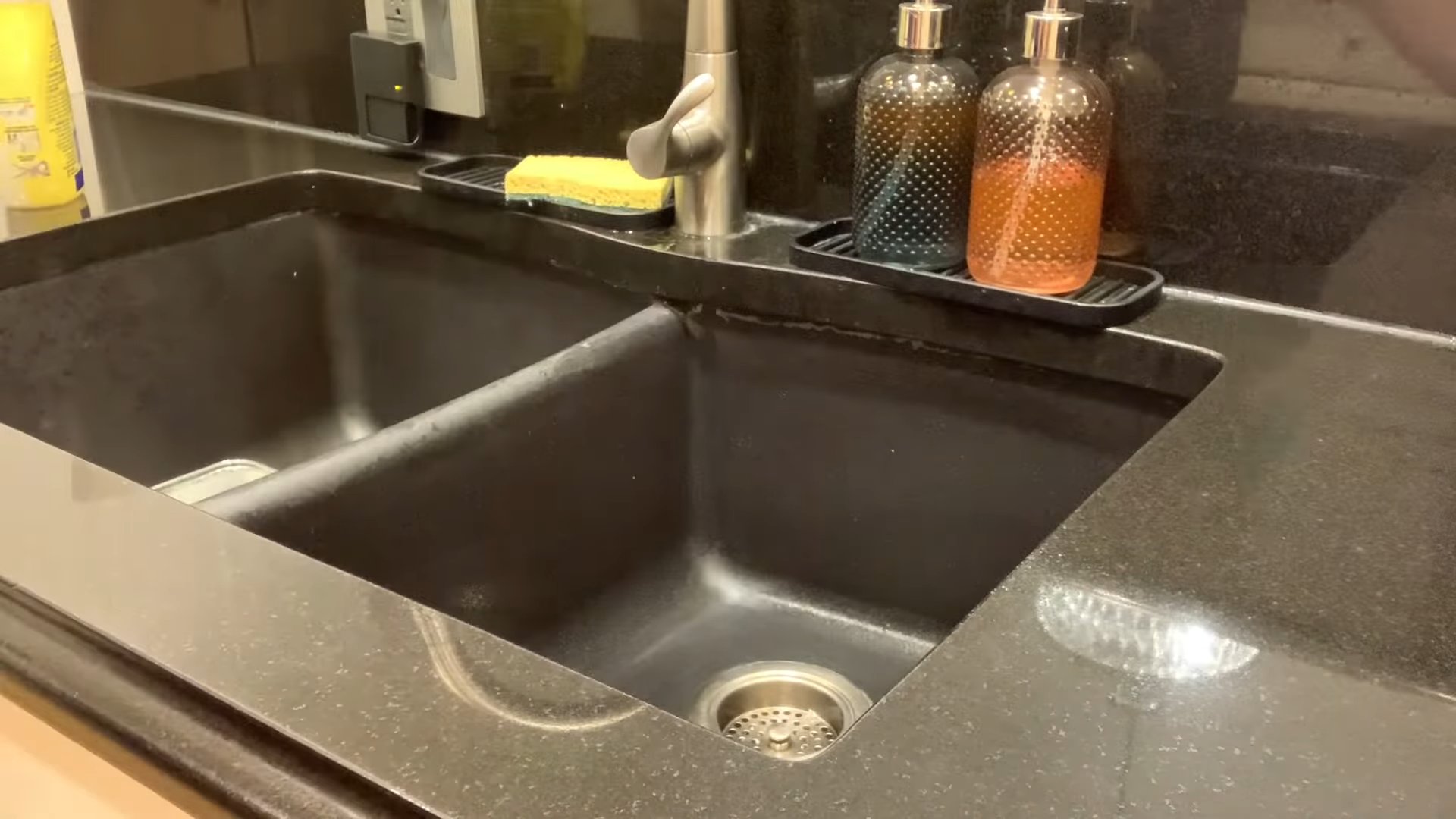
Conclusion
So, there you have it! Creating your own DIY vinegar all purpose spray is not just a cost-effective alternative to store-bought cleaners; it’s a powerful, eco-friendly, and surprisingly versatile solution for tackling grime and dirt throughout your home. We’ve walked you through the simple steps, highlighting the benefits of ditching harsh chemicals for a natural, effective cleaner.
But why is this DIY trick a must-try? Beyond the savings and the environmental advantages, it’s about control. You control the ingredients, ensuring you’re not exposing yourself or your family to potentially harmful substances. You control the scent, customizing it to your preferences with essential oils. And you control the strength, adjusting the vinegar-to-water ratio to suit different cleaning tasks.
Think of the possibilities! Use it in the kitchen to wipe down countertops and appliances. In the bathroom, it’s fantastic for cleaning sinks, showers, and even toilets (though always test in an inconspicuous area first). It’s also great for cleaning windows and mirrors, leaving them streak-free and sparkling.
Variations to Explore:
* Citrus Infusion: For an extra boost of cleaning power and a refreshing scent, infuse your vinegar with citrus peels (lemon, orange, grapefruit) for a week or two before mixing your spray. This adds a natural degreasing element and a pleasant aroma.
* Herbaceous Blend: Add fresh herbs like rosemary, thyme, or lavender to your vinegar infusion for a unique and calming scent. These herbs also possess antibacterial properties, further enhancing the cleaning power of your spray.
* Tea Tree Power: For areas prone to mold or mildew, add a few drops of tea tree essential oil to your spray. Tea tree oil is a potent antifungal and antibacterial agent, making it ideal for bathroom cleaning.
* Eucalyptus Freshness: Eucalyptus essential oil adds a refreshing and invigorating scent, perfect for cleaning floors and other large surfaces. It also has antiseptic properties.
* Baking Soda Boost: For stubborn stains or grime, pre-treat the area with a paste of baking soda and water before spraying with your DIY vinegar all purpose spray. The baking soda will help to loosen the dirt, making it easier to wipe away.
We encourage you to give this DIY vinegar all purpose spray a try. It’s a simple, rewarding project that can transform your cleaning routine. Experiment with different essential oil combinations to find your favorite scent. Adjust the vinegar-to-water ratio to suit your specific cleaning needs.
Most importantly, we want to hear about your experience! Share your tips, tricks, and variations in the comments below. Let us know how this DIY cleaner has worked for you and any creative ways you’ve found to use it. Together, we can create a community of eco-conscious cleaners who are passionate about natural, effective solutions. So, grab your vinegar, your favorite essential oils, and get ready to experience the power of DIY cleaning!
Frequently Asked Questions (FAQ)
Q: Is vinegar safe to use on all surfaces?
A: While vinegar is a fantastic natural cleaner, it’s not suitable for all surfaces. Avoid using it on natural stone surfaces like marble, granite, and limestone, as the acidity can etch and damage them. It’s also best to avoid using it on waxed furniture, as it can strip the wax. Always test your DIY vinegar all purpose spray in an inconspicuous area before applying it to a larger surface.
Q: What is the best type of vinegar to use for cleaning?
A: White distilled vinegar is the best choice for cleaning. It’s inexpensive, readily available, and has a higher acidity level than other types of vinegar, making it more effective at cutting through grease and grime. Avoid using flavored vinegars, as they may contain sugars or other additives that can leave a sticky residue.
Q: How long will my DIY vinegar all purpose spray last?
A: Your DIY vinegar all purpose spray will last indefinitely, as vinegar is a natural preservative. However, the scent of the essential oils may fade over time. To maintain the fragrance, you can add a few more drops of essential oil to the spray bottle every few weeks. Store your spray in a cool, dark place to prolong the shelf life of the essential oils.
Q: Can I use this spray to clean my hardwood floors?
A: While some people use diluted vinegar on hardwood floors, it’s generally not recommended. The acidity of the vinegar can damage the finish over time, leading to dullness and discoloration. If you choose to use it, dilute the vinegar significantly (no more than 1/4 cup of vinegar per gallon of water) and test it in an inconspicuous area first. Always wring out your mop thoroughly to avoid leaving excess water on the floor.
Q: What essential oils are best for cleaning?
A: Many essential oils have antibacterial, antifungal, and antiviral properties, making them excellent choices for cleaning. Some popular options include:
* Lemon: A natural degreaser with a refreshing scent.
* Tea Tree: A potent antifungal and antibacterial agent.
* Lavender: A calming scent with antiseptic properties.
* Eucalyptus: An invigorating scent with antiseptic properties.
* Peppermint: A refreshing scent with antibacterial properties.
* Orange: A natural degreaser with a cheerful scent.
Experiment with different combinations to find your favorite scent and cleaning power.
Q: My spray smells too strongly of vinegar. How can I reduce the odor?
A: The vinegar smell will dissipate quickly after spraying. However, if you find the odor too strong, you can reduce the amount of vinegar in your spray. Start with a ratio of 1 part vinegar to 3 parts water and adjust as needed. Adding more essential oils can also help to mask the vinegar smell.
Q: Can I use this spray to clean my windows and mirrors?
A: Yes, DIY vinegar all purpose spray is excellent for cleaning windows and mirrors. The vinegar helps to cut through grime and leave a streak-free shine. Simply spray the surface and wipe clean with a microfiber cloth.
Q: Is this spray safe to use around pets and children?
A: Yes, this spray is generally safe to use around pets and children, as it contains only natural ingredients. However, it’s always a good idea to keep cleaning products out of reach of children and to avoid spraying directly on pets. If your pet ingests the spray, contact your veterinarian. Also, be mindful of essential oils, as some can be harmful to pets. Research which essential oils are safe for your specific pet before using them in your spray.
Q: Can I use this spray to disinfect surfaces?
A: While vinegar has some antibacterial properties, it’s not as effective as commercial disinfectants. For disinfecting surfaces, you may want to consider using a stronger solution, such as a bleach solution or a commercial disinfectant spray. However, for everyday cleaning and sanitizing, your DIY vinegar all purpose spray is a great option.
Q: What if I don’t have essential oils? Can I still make this spray?
A: Yes, you can still make the spray without essential oils. The vinegar and water mixture will still be effective for cleaning. The essential oils primarily add fragrance and some additional cleaning properties, but they are not essential for the spray to work.

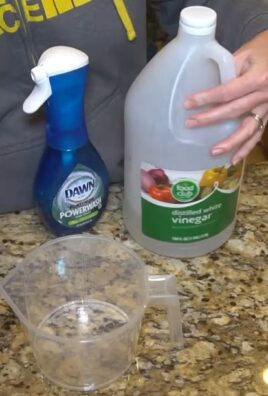
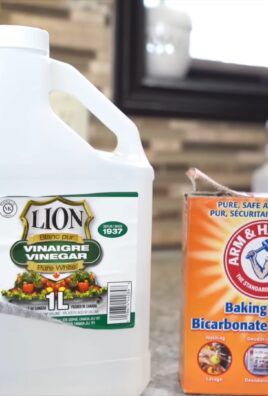
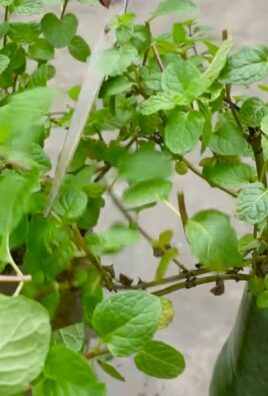
Leave a Comment